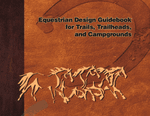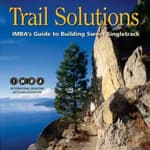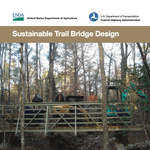Equestrian Design Guidebook for Trails, Trailheads, and Campgrounds
Trail Competencies
-
Trail Construction
- • Construction Specifications
- • Corridor Clearing/Site Preparation
- • Hand-Built Trail Construction
- • Mechanized Trail Construction
- • Trail Finishwork
- • Water Management/Drainage Features
- • Water Crossing Structures
- • Tread Hardening and Surfacing
-
Project Planning and Design
- • Trail Specifications
- • Field Design: Trail Alignment Identification and Marking
- • Trail Plan Development
- • Implementation Plan
- • Interpretation
Summary
This guidebook provides practical guidelines for developing recreation environments that are sensitive to the needs of riders and their stock.
Overview
To keep the size and scope of this guidebook manageable, the focus is limited to equestrian elements--such as corrals, tread width, horse-friendly surfaces, and so forth--and a few closely related subjects. The information presented can be adapted to a variety of settings and levels of development, as well as to different jurisdictions. In many cases, the expertise of specialists--for example, engineers, landscape architects, and scientists--is required. Planners and designers should consult other sources for basic planning and design criteria, including agency-specific guidelines, legal requirements, engineering and architectural standards, scientific expertise, and so forth. Consulting with area riders is an essential part of the planning process. Sound planning and design judgment are the keys to choosing the most appropriate elements, given local conditions. This guidebook is intended as a practical guide for trail work, not a policy manual--however, the authors believe the information is consistent with current U.S. Department of Agriculture (USDA) Forest Service policies and direction.
Trail Types Covered
| Published | Aug 2009 |
|---|
This link will take you away from TrailSkills.org. Please report broken links to us.
1438 people have viewed this resource




